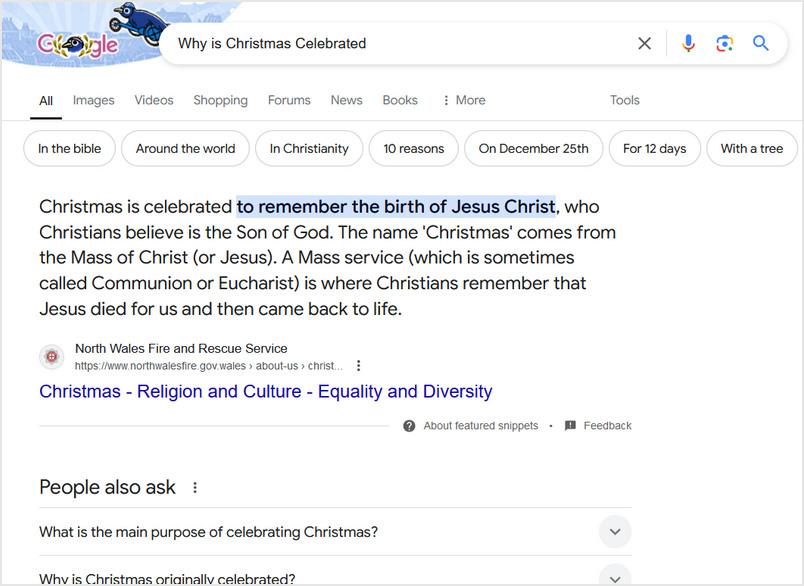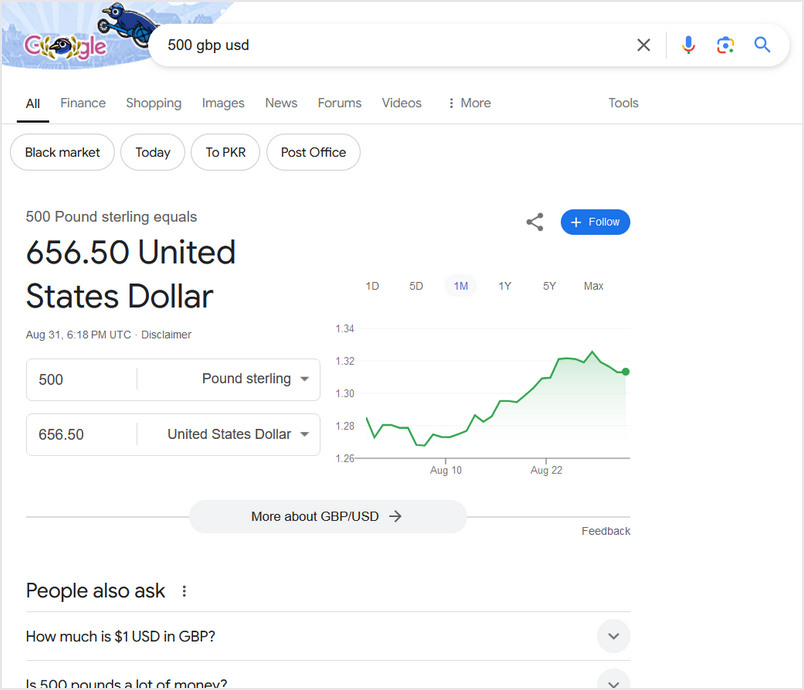It’s become an annual ritual to predict the demise of SEO for almost a decade now, and despite all the obituaries, SEO remains alive and relevant. SEO is not only alive and kicking, it is still the best and often cheapest method of gaining huge, recurring, high-quality, and targeted traffic that directly converts into leads and sales. In this article, we will discuss the future of SEO in 2024 and analyze the key trends that will shape SEO in the years ahead.
As you read, keep in mind that it’s quite common for websites to lose all of their organic traffic in a night after a major algorithmic update. For a business reliant on organic search traffic, such an event can be disastrous. You can minimize the possibility of this happening to you by keeping an eye on the changes introduced by Google and adhering to its guidelines for best SEO practices.
Rise of AI: Google’s Search Generative Experience
Increasing use of AI in search engine algorithms is one of the most noticeable trend in SEO. Google has been incorporating artificial intelligence (AI) and machine learning (ML) over the years in its algorithms for ranking content. Over time, the importance of both AI and ML has only grown, and this trend is expected to last in the foreseeable future.
The average searcher also feels this change in how Search Engine Results Page (SERP) results are calculated and displayed as SERPs have changed drastically over the last few years. Google’s Search Generative Experience (SGE) is the result of AI, as the results shown under SGE are generated by artificial intelligence. A look at the below screenshot shows how most users see SERPs today.

We typed “Why is Christmas Celebrated” in the search bar, and instead of immediately seeing the blue-colored links to pages we’ve all become accustomed to over the last 2 decades, SERP throws a small excerpt paragraph explaining the reason behind celebrating Christmas.
All of this has been generated by AI, and there’s a good chance that you won’t need to scroll down below where links to other webpages are placed as one can get all the information from the SGE section itself without needing to open a single link listed on the SERP.
Answer Engine Optimization
The concept of answer engine optimization is closely related to AI technologies and systems such as Google’s Search Generative Experience (SGE), ChatGPT, and Microsoft’s Bing Chatbot. The focus of search engines has been shifting towards providing direct answers to users’ searches and queries, and SGE is an excellent example of this trend.
Answer Engine Optimization involves optimizing your content for the so-called answer engines or SGE, ChatGPT, Microsoft Bing Chatbot, etc. Just imagine how much traffic your website or webpage can get if they are among the top 3 pages SGE recommends for a particular search query. In a way, AEO is replacing SEO, and although we don’t expect the good old SEO to go away completely, there’s no doubt that AEO is the way to go if you want your content to be highlighted by search engines or answer engines.
Zero-Click Searches
Zero-click searches, as the very name suggests, refer to the searches when a user doesn’t have to click any link displayed on SERPs. A primary example is currency conversion as shown in the image below.

As you can see from the image, we typed “500 GBP USD” in the search bar, and Google displayed the equivalent amount of US dollars at current exchange rates. Other prominent examples of zero-click searches are conversions between different units or weather information.

The above image shows the results for the search query “Ashland OH Weather”. As evident from this image, Google displays a thorough result for this query that includes not only the current temperature but also the maximum and minimum temperatures for the next 7 days, humidity level, precipitation level, wind speed, etc.
The searcher gets all the necessary information without clicking on anything. The ratio of such zero-click searches is rising rapidly; according to some estimates, a whopping 50% of the searchers performed today are zero-click searches.
The increasing importance of E-E-A-T
E-E-A-T stands for Experience, Expertise, Authoritativeness, Trustworthiness. While not directly a part of Google’s search algorithms, E-E-A-T is a vital component of Google’s Search Rater Guidelines that search raters use for rating content quality. To put it simply, it means that your content has a higher chance of ranking among the top SERP results if Google’s algorithm considers your site to have strong E-E-A-T.
“E” denotes experience, which means that Google will rank your content higher if it has reasons to believe that the content creator has first-hand experience with the subject matter being discussed.
The second “E” denotes expertise. In other words, do they have credentials, knowledge, and qualifications that signify expertise in a given topic.
“A” stands for authoritativeness or the overall reputation of an author or website within their industry. So, CNN will have a high authoritativeness in the news industry due to its well-established brand and reputation in the industry. For authoritativeness, Google will also consider whether other established sites in your industry link to your content through backlinks. So, much like old-day SEO, sites with a good number of links from high-ranked pages/websites in their industry will have a higher authoritativeness score than those with a weaker backlink profile.
“T” stands for trustworthiness, and it’s the most critical part of the E-E-A-T framework. In addition to the usual quality factors, T also takes into account other technical factors, such as the security of your site’s connection, encryption, etc., when calculating the trustworthiness score. So, Google will consider an e-commerce site with weak connection security and encryption untrustworthy, which may affect its rankings on SERPs.
Video SEO
As per the recent Video Marketing Statistics report, 91% of businesses use video as a marketing tool. This single stat is enough to explain the video’s importance in your marketing mix. 95% of marketers said that video marketing has helped them increase their brand awareness, while 96% claim that video marketing has led to a better understanding of their products or services among their target audience or customers.
According to the same report, 87% of marketers claim that video has helped them increase sales. Plus, the vast majority said that video marketing has increased the time spent by users on their website, which is a significant boost to overall SEO rankings.
So, it’s clear that no serious marketer can ignore video, and just creating highly engaging and shareable videos will not cut it. If your videos are not discoverable due to SEO, their reach will be quite limited. Thus, video SEO becomes extremely important for your marketing efforts as SERPs have been displaying video results on top for many queries for years.
Video SEO will ensure that your videos can generate targeted organic traffic from SERPs. The cost of video production has fallen dramatically over the years due to the rise of several easy tools such as Canva, and all you need is to invest a little bit of time and effort to come up with stellar videos that will increase your sales, leads, SERP rankings, traffic, customer loyalty, and brand awareness.
You’ll also need to conduct thorough research to create a video marketing strategy. Several available video keywords and video analytics tools can come in quite handy in this process. So, as per our estimates, video SEO will stay relevant going forward in 2024. If your business hasn’t yet started creating videos, consider adding them to your marketing mix in 2024.
Conclusion
One clear trend that is impossible not to notice and emerges as the most important trend that will dominate SEO in 2024 and for many years to come is the increasing importance of AI in search ranking algorithms. Google’s SGE, zero-click searches, and answer engine optimization are all directly related to this rise of AI in SERP results.
According to most industry estimates, this trend will only become more critical going forward as search engines will keep delegating more and more tasks to artificial intelligence to serve better results for their users. So, your SEO strategy needs to consider the ever-growing importance of AI in SEO and make necessary adjustments to benefit from this trend.







